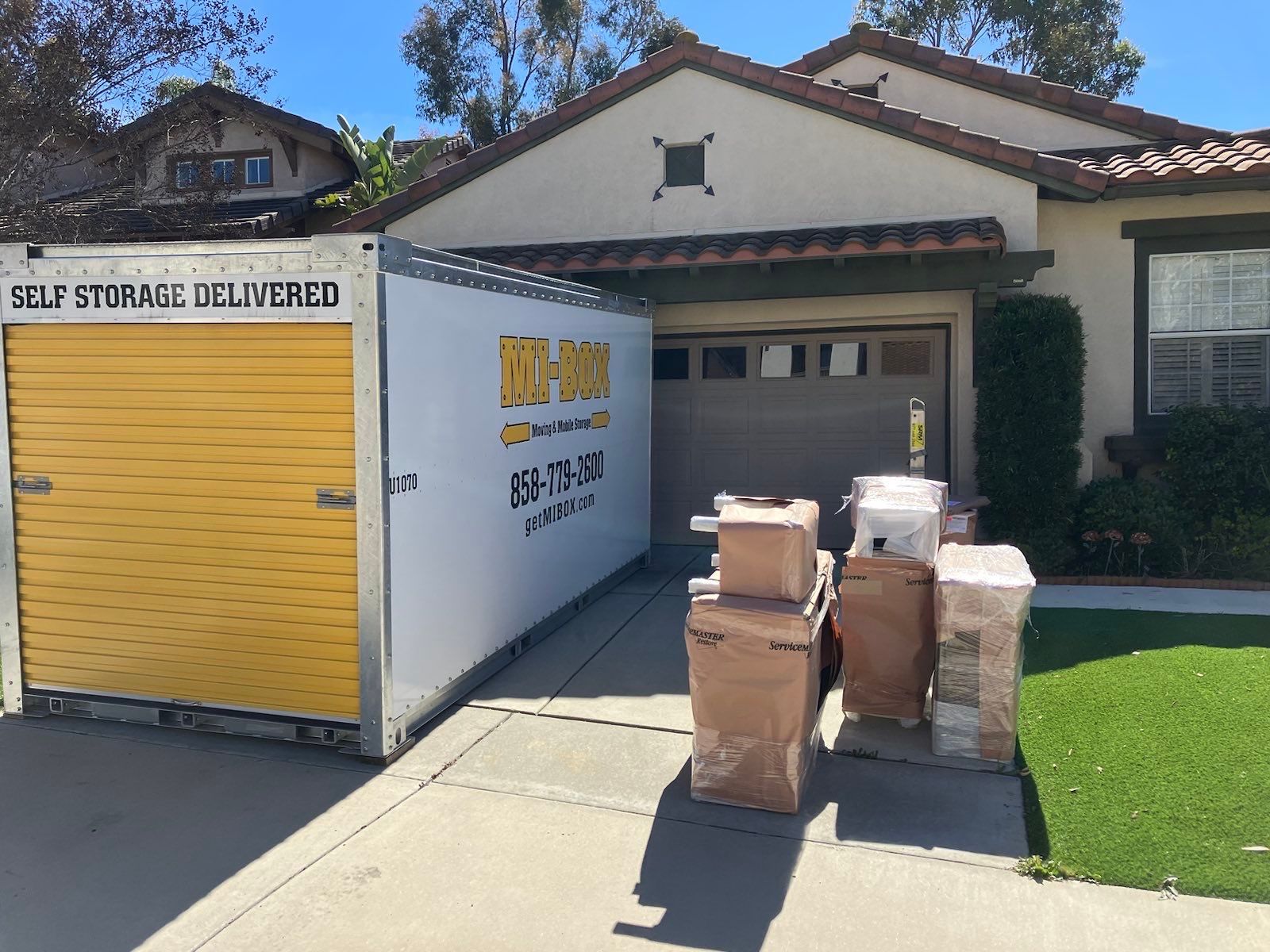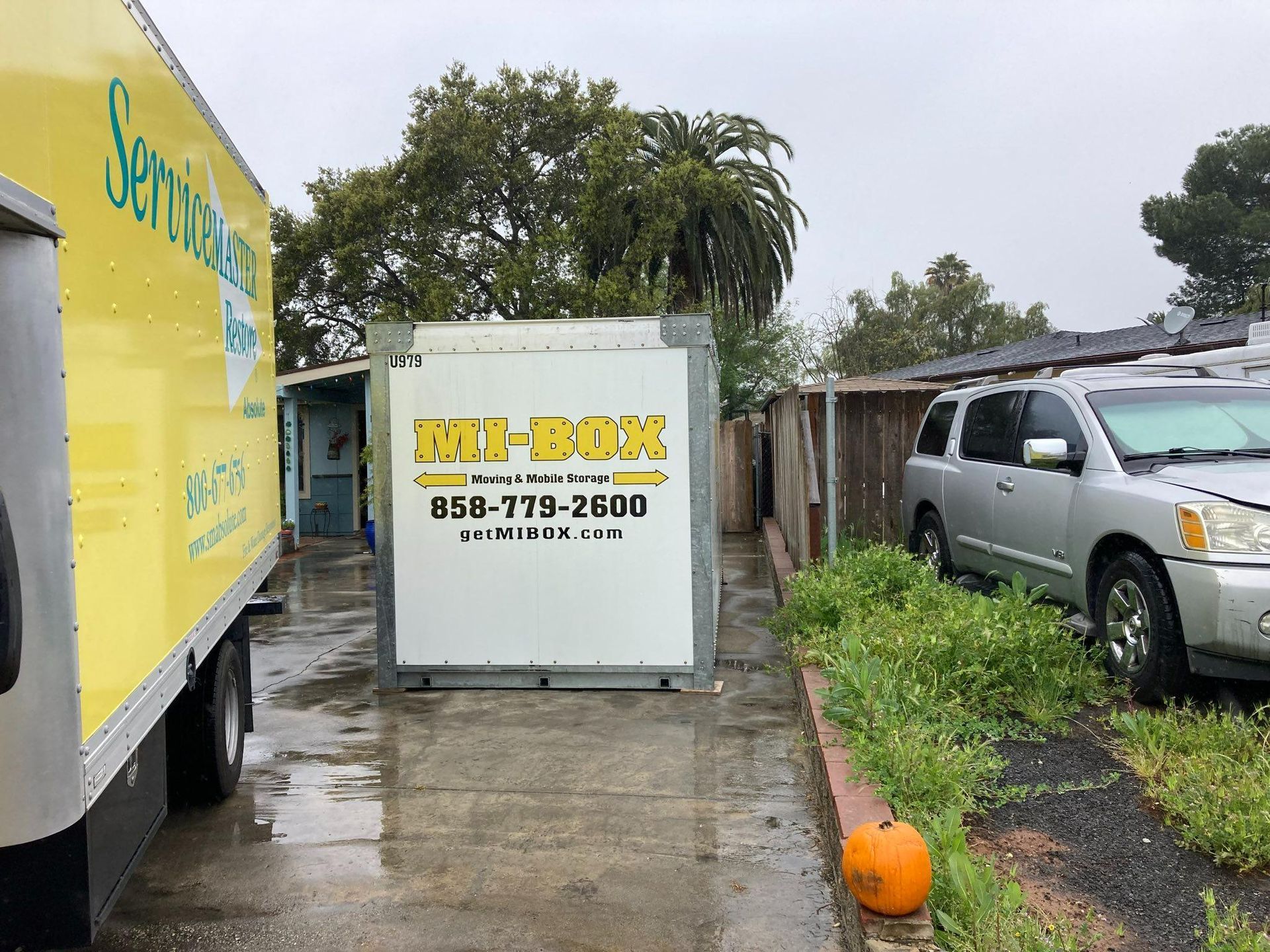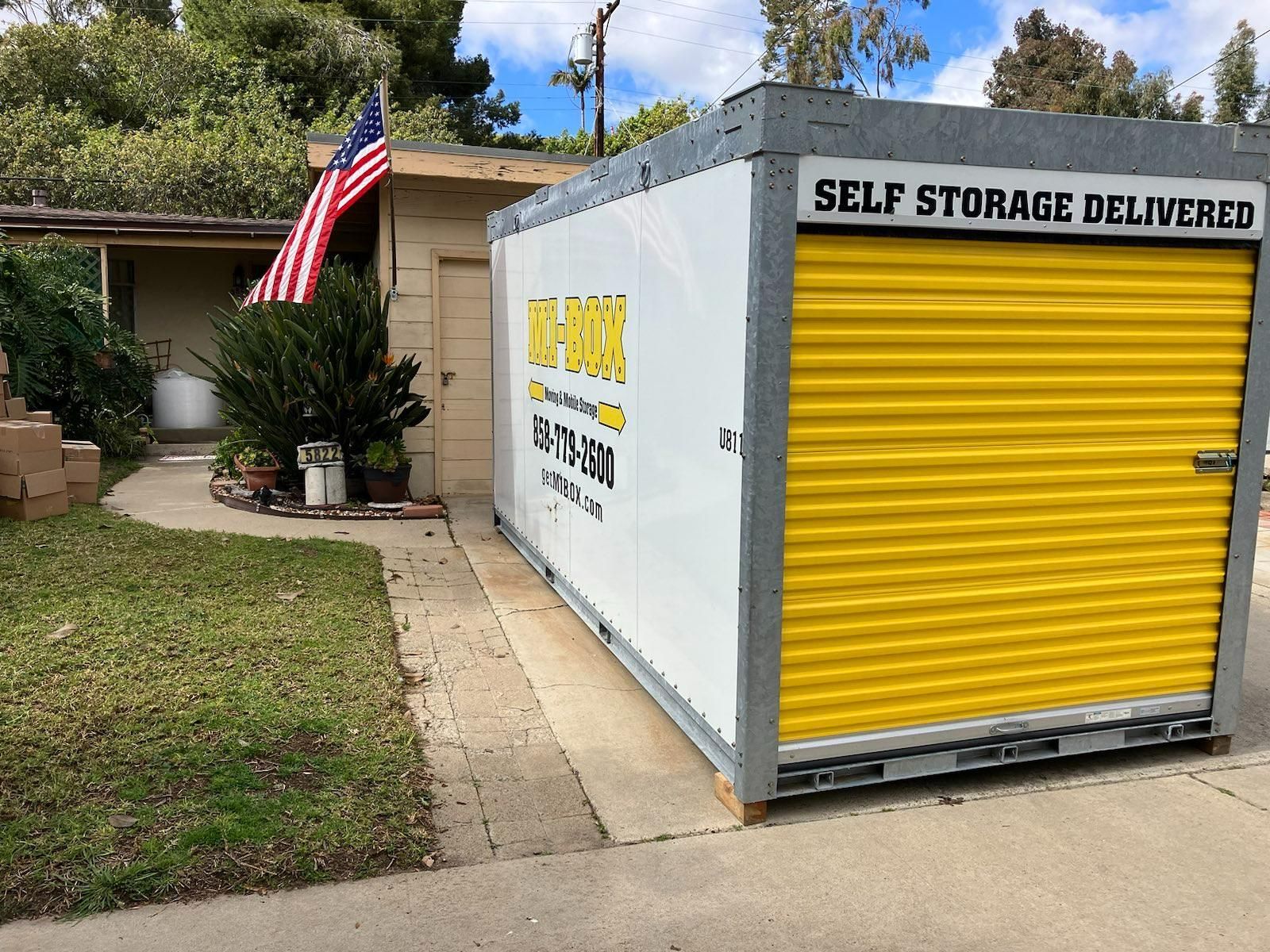Packing Your Portable Storage Unit Like a Pro: Tips for Maximum Space and Safety

Portable storage units offer incredible convenience, allowing you to pack at your own pace and store your belongings securely. But clever packing is essential to maximizing their potential and guaranteeing both enough room for all your belongings and their safety during long-term storage or transport. Don't just throw things in; pack like a pro, and your future self will thank you!
1. The Right Supplies Are Your Best Friends
You wouldn't build a house without the right tools, and packing is no different. Quality packing supplies are an investment in the safety of your belongings.
Practical Advice:
- Sturdy Boxes: Opt for new, uniformly sized moving boxes. They stack better, create more stable columns, and are less likely to collapse than repurposed grocery boxes. Invest in specialty boxes for mirrors, dishes, and wardrobe items.
- Packing Materials: Stock up on bubble wrap (various sizes), packing paper (unprinted newsprint is ideal for avoiding ink transfer), packing peanuts, and furniture pads or moving blankets.
- Strong Tape: Use professional-grade packing tape, not masking tape or scotch tape. You'll need plenty!
- Markers & Labels: Bold, permanent markers and clear labels are essential for easy identification.
- Plastic Wrap/Stretch Film: Great for securing dresser drawers, wrapping furniture, and holding blankets in place.
- Tie-Downs/Straps: Ratchet straps or bungee cords are needed for securing items and preventing shifting.
Did You Know?
Using clear plastic bins for items you might need to access later (or for items susceptible to moisture) allows you to see the contents without opening every box, saving time during retrieval.
2. Mastering the Art of Loading
The way you load your container is just as important as how you pack individual boxes. It's about stability, weight distribution, and maximizing vertical space.
Practical Advice:
- Start with Heavy, Flat Items: Begin by placing your heaviest, bulkiest items (appliances, large furniture, heavy boxes of books) at the back of the container and along the sides. This creates a stable base and keeps the center of gravity low.
- Distribute Weight Evenly: Avoid putting all heavy items on one side. Distribute the weight as evenly as possible from side-to-side and front-to-back to prevent shifting during transit and help the container to be balanced for transport.
- Utilize Vertical Space: Stack boxes and items from floor to ceiling whenever possible. Create "walls" of boxes, placing heavier boxes on the bottom and progressively lighter boxes on top.
- Fill All Gaps: Empty spaces allow items to shift, which can lead to damage. Use soft items like pillows, blankets, towels, or even stuffed animals to fill any voids between boxes and furniture.
- Disassemble Furniture: Remove legs from tables, take apart bed frames, and dismantle large shelving units. Wrap individual pieces and keep all hardware in labeled bags taped directly to the corresponding furniture piece.
- Create an "Access Aisle" (Optional): If you anticipate needing to access items in the container while it's stored, plan a narrow pathway down the middle or along one side. Place frequently needed items along this path.
The Pain Point:
Without proper weight distribution, your container can become unstable, leading to items shifting, toppling, or even damaging the container itself during transportation. An unstable load can also make the container difficult or unsafe to move.
3. Labeling and Inventory: Your Future Self Will Thank You
This step is often overlooked in the rush, but it's a game-changer when it comes to unpacking or retrieving specific items.
Practical Advice:
- Label All Sides: Don't just label the top. Label at least two sides of each box with contents and the room it belongs to (e.g., "Kitchen - Pots & Pans," "Bedroom 2 - Linens").
- Be Specific: Instead of "Miscellaneous," write "Living Room - Photos, Books, Lampshades."
- Fragile & Important Warnings: Clearly mark "FRAGILE" on boxes containing breakables. Use "Open First" or a distinct color for essential items you'll need immediately upon retrieving the container (toiletries, basic kitchenware, important documents).
- Create an Inventory List: Keep a master list (digital or written) of what's in each box, especially for opaque containers. Assign each box a number and list its contents next to that number. This is invaluable for insurance purposes and finding specific items later.
Did You Know?
Color-coding your boxes by room (e.g., green for kitchen, blue for master bedroom) can streamline the unpacking process even further, making it easy to direct boxes to their correct destinations.
4. Protecting Valuables and Odd Shapes
Some items require extra attention due to their fragility, value, or unusual form.
Practical Advice:
- Fragile Items: Wrap each fragile item (dishes, glassware, ceramics) individually with packing paper or bubble wrap. Place them in sturdy boxes with plenty of cushioning (crumpled paper, peanuts) so they cannot shift inside the box. Create a "cushion" at the bottom and top of the box.
- Artwork & Mirrors: Use specialized picture boxes, or wrap them in bubble wrap and then a moving blanket. Stand them on edge, not flat, and secure them so they cannot move.
- Electronics: Use original packaging if available. Otherwise, wrap in anti-static bubble wrap, coil and label cords, and place in sturdy boxes. Fill voids with cushioning.
- Appliances: Clean and dry thoroughly. Secure doors with tape, remove shelves, and bundle cords. Refrigerators and freezers should be defrosted and dried completely, with doors propped slightly ajar to prevent mold.
- Mattresses & Upholstered Furniture: Cover with mattress bags and furniture covers (or heavy plastic sheeting) to protect against dust and moisture. Stand mattresses on their side against the wall to save space.
How MI-BOX San Diego Takes the Pain Out of Moving and Storage
While smart packing is important, choosing the right portable storage provider makes the entire process smoother. MI-BOX San Diego understands the pain points of moving and storage, and their self storage containers are designed to simplify your life:
- Effortless Delivery & Pickup: MI-BOX San Diego's patented Level Lift System makes sure your container is delivered and picked up horizontally, keeping your belongings stable and reducing shifting inside the unit. This means less worry about your carefully packed items tumbling during transport.
- Flexible Sizing: With 8-foot, 16-foot, and 20-foot containers, they offer sizes to match any project, from a small apartment declutter to a large household move, helping you avoid overpaying or needing multiple unexpected units.
- Secure & Weather-Resistant: Their all-steel constructed containers provide robust protection against the elements and theft, giving you peace of mind that your packed valuables are safe whether on your property or at their secure storage facility.
- Customer-Focused Service: As a locally owned and operated company, MI-BOX San Diego prioritizes personalized service and clear communication, making the logistical side of your storage easy to navigate so you can focus on packing like a pro.
By investing time in smart packing and choosing a reliable partner like MI-BOX San Diego, you transform what could be a stressful ordeal into an organized, efficient, and secure storage solution. Your belongings deserve nothing less!
FAQs about Packing Your Portable Storage Unit:
Do I need to worry about moisture or humidity inside the container, especially for long-term storage?
Yes, especially if you're storing for an extended period or in a humid climate. While containers are weather-resistant, air circulation can be limited. Consider using desiccant packs or moisture absorbers (like DampRid) inside the unit, particularly if storing sensitive items like electronics, documents, or upholstered furniture, to help prevent mold and mildew.
How can I make it easier to find specific items if I need to access my container later?
The best strategy is meticulous labeling and inventory. Number each box and create a master list detailing the contents of each numbered box. If you anticipate needing frequent access to certain items, pack them last or along an accessible aisle within the container. You can also color-code boxes for different rooms or categories to quickly locate what you need.






